READY TO GET STARTED?
REQUEST A FREE ESTIMATE
Fill out the form below or call (888) 466-7849 for a free, no-obligation estimate.

The holiday season is a time to enjoy family, eat delicious food, and not worry about pests! Unfortunately, overwintering pests such as spiders, rodents, ants, ticks, and more are looking indoors for food, water, and shelter. During the holiday season, Christmas trees, wreaths, firewood, decorations, and storage boxes provide the ideal opportunity for these pests to hitchhike inside.
Check out our top 3 pest prevention tips for holiday pest control.
Check Your Decorations
Attics, basements, and garages provide perfect storage spaces for our holiday decorations. These areas in your home are dark and secluded, making them the perfect place for pests to invade. Stored decorations provide an undisturbed hiding place for pests such as mice, rats, spiders, and more. These creatures will often crawl into the storage boxes you put away last season, contaminating and destroying your decorations.
To ensure that you do not bring these pests into your main living space, inspect and unpack these items outside first. After the holiday season has ended, pack your decorations like foliage, potpourri, and Indian corn in air-tight containers to help prevent pests for next year.
Check Your Firewood
With colder weather here, many homeowners start utilizing their fireplace, bringing in more firewood from outside. However, it’s crucial to inspect firewood before bringing it inside the home. Pests like spiders, termites, and ants are often found on firewood. Consider placing the firewood outside 20 feet from your home and on a raised platform.
Check Your Christmas Tree & Wreaths
If your family celebrates Christmas, you might opt to buy a real Christmas tree and wreath. While both can showcase the authentic look of Christmas, they also tend to carry pests such as spiders, moths, mites, and even squirrels!
To prevent these unwanted pests from hitchhiking indoors, inspect both items outside and then shake them. Also, check these items for any droppings, gnaw marks, or other damage before bringing them inside.
If you suspect that you have a holiday pest problem, consider reaching out to your local pest control company. These professionals will be able to inspect your home, provide the best pest control plan, and recommend prevention techniques for your home.
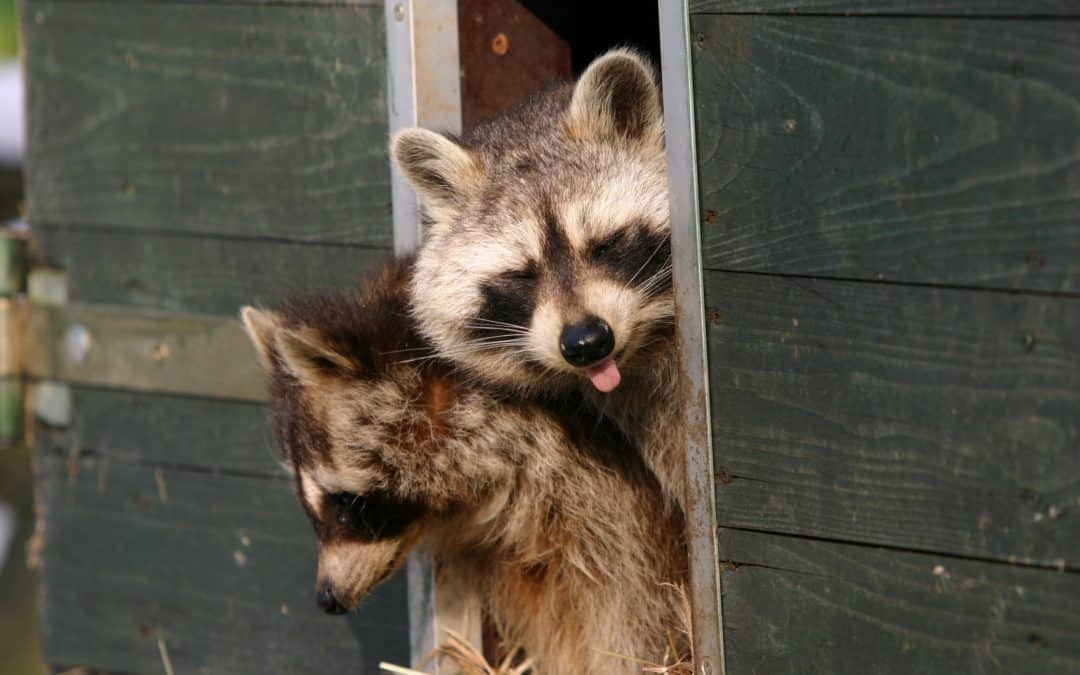
Food, water, and a warm place to live are three things wildlife creatures are in search of this winter season. For them, our house can give them direct access to these needs, where they often find their way into our chimneys, attic, basements, and crawlspaces. It’s important to know what pests to look out for and what preventative measures to take, to help prevent a wildlife infestation.
Rats
Seeing a rat inside is always alarming. These rodents are known to live in crawlspaces and between the side beams of walls, often accessing inside through the smallest hole and gap. Once inside, rats will chew on electrical wire, causing property damage and an increased risk of fires. Their droppings are also a risk, as they contain pathogens dangerous to humans.
Raccoons
Nocturnal omnivores, raccoons are dexterous and can use their paws to open lids and doors. These animals will use their hands to dig for food, especially in garbage cans. A creature of habit, once raccoons discover food sources in a particular area, such as your house, they will keep coming back over and over, causing both a risk of an infestation and damaged property.
Squirrels
Squirrels are one of the most common wildlife creatures homeowners see. While they are cute from afar, if found inside your home, they can cause considerable damage. Squirrels will take refuge in basements and attics, often bringing acorns to store for the wintertime. Like rats, these rodents will also chew on electrical wire, creating a risk of a fire. Both squirrels themselves and their droppings can contain diseases and pathogens.
To avoid a winter wildlife invasion, prevention is key. Here are a few wildlife prevention tips to help with wildlife control:
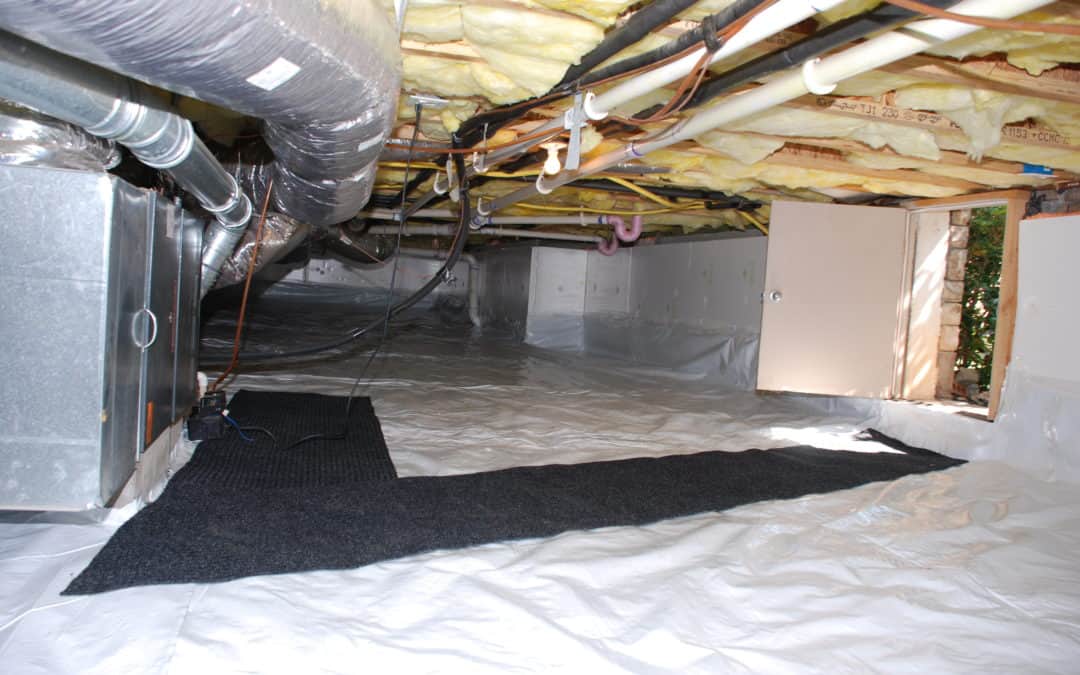
During the winter, the last thing you want to deal with is a cold home. With temperatures dropping as we approach the winter season, it’s important that your heating systems are ready and your home is prepared to weather the cold. If not, you could be dealing with cold air and high energy bills. Crawlspace enclosure this winter provides a solution to both problems that many homeowners face.
There are several benefits to enclosing your crawlspace. One that many look forward to is saving on their energy bill. The moisture in your crawlspace can affect the temperature inside the home, causing the HVAC unit or furnace to run longer to help keep your home warm, in return using more electricity. When you enclose your crawlspace, the moisture barrier acts as a sealant, which controls the moisture levels. This will ease the strain of your HVAC system to make your home more energy-efficient and save on energy bills.
Another great benefit of enclosing your crawlspace is preventing mold and odor. If left open, high moisture levels can cause mold and mildew growth, creating considerable damage to your home, posing a health risk to your family, and potentially causing an odor throughout your home. When your crawlspace is enclosed, the moisture barrier helps to reduce moisture, preventing mold and mildew from forming.
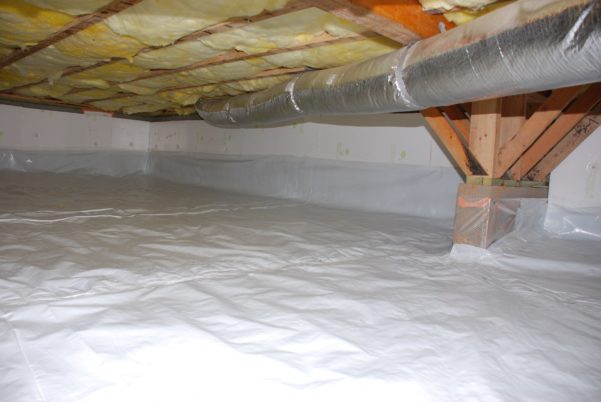
An unsealed crawlspace is an open invitation to pests and wildlife looking for shelter, food, and water. Once inside, these pests and nuisance wildlife can cause damage and present a health risk to your home and family. Once installed, the moisture barrier can help eliminate entry points for these pests to infest.
Consider calling your local pest control company for a crawlspace enclosure inspection and quote to stay warm and pest-free this winter!
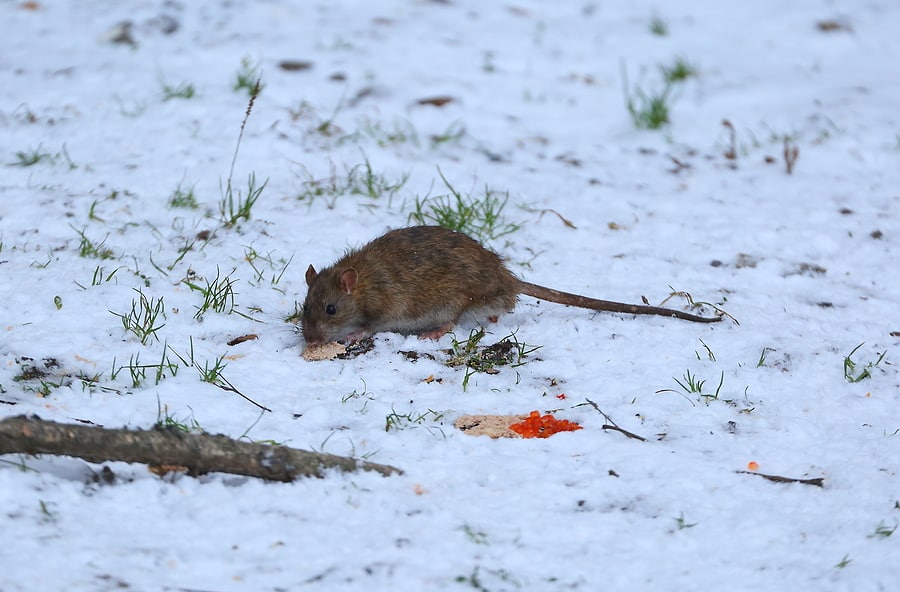
A common myth is that rodents like rats, mice, and even squirrels hibernate in the winter. Unfortunately for us, this is not true. While their activity may slow down while outside in the colder months, rodents are actually active year-round. Rodents can survive a wide range of places and climates. They are also known to carry diseases that can easily be spread to humans. Rodent-borne diseases like hantavirus and salmonella can be serious when contracted by people.
Rodents have developed several survival mechanisms to get through the winter.
In late summer and fall, rodents will start gathering as much food as possible to store in their burrows and nests for the winter. While they don’t hibernate, they will stockpile resources to help limit the number of times they have to venture out in the cold in search of food. They also have to increase the amount of food they eat to help retain their body temperature.
Rodents need a warm place to spend the winter. Like other overwintering pests, they will try and access your home to seek shelter from the cold. Rats, in particular, are capable of chewing through cinder blocks, lead, glass, aluminum, vinyl, brick, and even concrete in order to access your home. If they can’t get indoors, they are also great at digging tunnels and will burrow for shelter, usually under walls or near utility lines that come into your home.
Rodents are extremely creative when it comes to survival. They can adapt to most any situation. Our homes provide the ideal opportunity for rodents to overwinter by providing convenient cavities in walls, attics, crawlspaces, and between floors that protect them from the elements. These hiding spots are usually filled with insulation, as well, which gives them the perfect nesting material. Add in the heat we turn on in the winter and the food crumbs and other food sources we provide and they have an ideal living situation during the winter.
To keep these pests out this winter, try these rodent prevention tips:
If you have a problem with rodents, contact your local pest control company who can help identify the type of rodent you are dealing with and set you up with the appropriate rodent control program.
Prevent Bed Bugs this Holiday Season
How to Deal with a Pest Delivery at Your Business
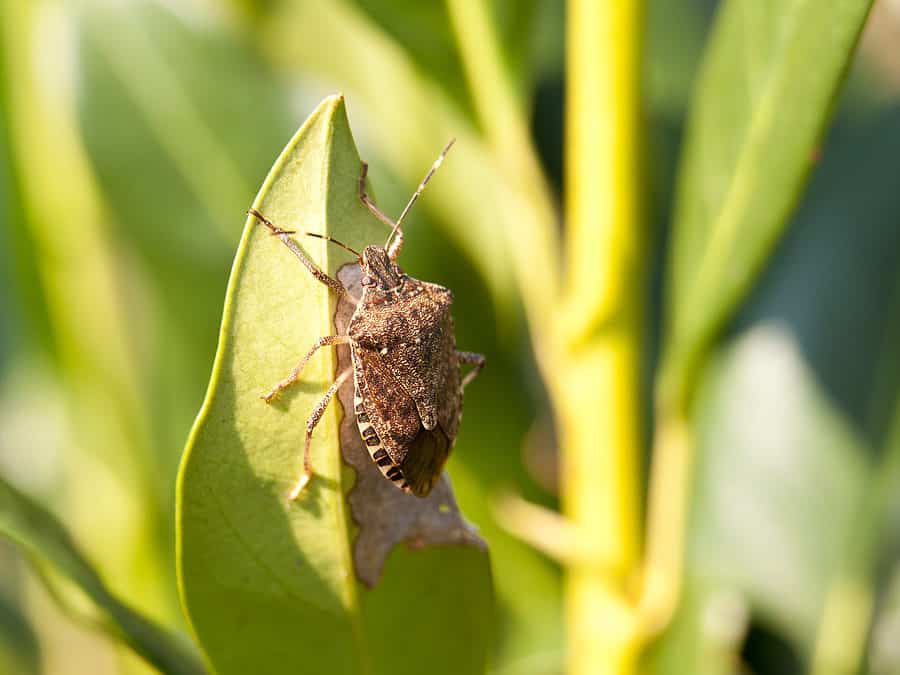
Overwintering is a common term used to describe pests and their activities that allow them to survive the colder temperatures. Overwintering pests will often seek comfort and shelter in homes and buildings because of their warmth. These pests can be especially sneaky and if you don’t take preventative measures as they can infest quickly. Here are some common overwintering pests and some easy do-it-yourself pest control tips to keep them outside of your house.
Stink Bugs
Stink bugs can infest homes in large numbers, especially during the fall. You can often find these bugs on the side of your home, where they can receive the most sunlight to keep warm. While these bugs aren’t harmful to humans, if crushed, they will emit an unpleasant odor.
Boxelder Bugs
One of the more aggressive species of overwintering pests, the boxelder bug has mouthparts are both piercing and capable of puncturing the skin if being handled. This can cause slight irritation and produce red spots, like mosquito bites. Crushing these bugs is not recommended, as their bodies will produce a strong odor and remains can leave a reddish stain on fabrics.
Lady Bugs
Ladybugs are considered harmless and deemed beneficial. They will often consume plant-eating insects such as aphids, mites, and scale insects, all of which can harm crops and plants in gardens; though if they invade your home, they can become a nuisance and can be difficult to get rid of.
Overwintering Pest Protection Tips